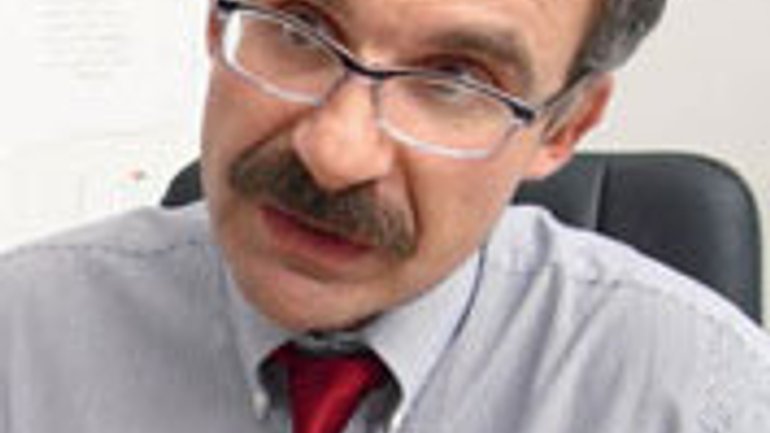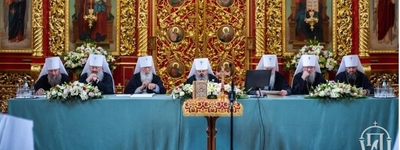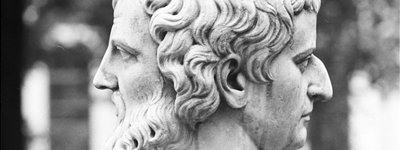May: About Kerchiefs and Identity

I don’t dare evaluate how strongly this ban is motivated by the global struggle against terrorism. Though, as declared by one of the leaders of the German liberals and Vice President of the European Parliament Silvana Koch-Mehrin, the burqa should be banned throughout Europe since covering women “openly supports values that we do not share in Europe.”
Practically at the same time the Moroccan government reported about the deportation from the country in the last several months more than 100 Christian foreigners who were accused of proselytizing. Thus, spreading their values – this time Christian – which the government of Morocco, judging from everything, also doesn’t share and the display of which it, most likely, also believes is “impudent.”
Despite the fact that you cannot compare the actions done to the “impudent” Christians in many Muslim countries with the actions made by European law-makers toward the “impudent” Muslims, they have a lot in common in their foundation.
And namely: the unwillingness to search for a model of coexistence of religions. Yes, precisely religion, because on the basis of some recent resolutions passed in the European capitals – aggressive secularization which resembles, lays claim to, religious status. Let us recall at least the French Law No. 2004-228 from March 2004 that uses the principle of secularity to address wearing conspicuous religious symbols in public primary and secondary schools.
It is difficult to understand why, in the name of what, and on what grounds does a secular democratic state have to prohibit its citizens from manifesting their personal religious conviction if such a display does not threaten the life or freedom of other citizens. Evidently, the growing number of Muslims in the Old World is provoking heated discussions about the identity of old European nations, which is only natural when it goes about the necessity to integrate into the European society the millions of Muslims who consciously chose Western European countries to be their fatherlands, about respect to the laws, values, and cultures of these countries. But how can these people be integrated with a ban? And furthermore, are the expectations coming true of a few state figures that secularism, which arises as an instrument to suppress religious “passionarity” (concept of Lev Gumilyov about the vital energy and power characteristic of an ethnic group), and, the point of the matter, religious diversity, will “sew together” the European communities? If someone is prohibited to wish Merry Christmas or send postcards that mention some crude “seasonal holidays,” and others are forced to take off their kerchiefs, is it really a question about the unity of European nations in order to find a solution?
Concerning the kerchief trouble there are three very serious processes. The first is the universal aspiration to defend one’s exceptionality and uniqueness, which is especially found in religion. Displaying one’s Muslimness, a person simultaneously announces that she is not a Buddhist, not a Sikh, not a believer of some other religion. Confessing oneself Orthodox, a Christian simultaneously declares that he is not Catholic or Protestant. As Samuel Huntington wrote “Even more than ethnicity, religion discriminates sharply and exclusively among people. A person can be half-French and half-Arab and simultaneously even a citizen of two countries. It is more difficult to be half-Catholic and half-Muslim.”
The second process, also called forth by globalization, is the complete reverse of the first. It creates above-national identities and global religious phenomena in which ethnic and religious differences are fused together. That is how individual Buddhist traditions transform into global Buddhism – “general Buddhism”: the great diversity of creeds, practices, schools of philosophy, and cults melt into that which the British called “Hinduism.” As such, in front of our eyes arises and strengthens global Islam, which lays claim to the creation of identity, which overcomes and even with time invalidates ethnic and language divisions. A “return to escape” is taking place in the search for what unites Indonesians and Tatars, Saudis and Tajiks. And from here the struggle for “pure Islam,” which goes back-to-back with fundamentalist revival; from there, to a great extent (though, of course, not exceptionally) the burqa on doctors in political sciences and Shahidkas with university diplomas.
And, finally, the third is the colossal interest to discuss identity, which (the interest), in the words of Sigmund Bauman, is capable of saying more about today’s condition of humanity than the results of the searching for sense of these identities.
Both liberals and conservatives are encountering the problem of identity: Nicolas Sarkozy and Dmitry Medvedev, Pope Benedict XVI and Patriarch Kirill. An impression is being made that the world is enduring a grandiose confirmation and reconfirmation, invention and reinvention of identities. Every day the Ukrainian society is being importunely urged to define itself with its identity. In the public space ideas and propositions that so many conscious people only a few years ago never even dreamed about are being articulated and becoming customary. About the division of the country in two, for example. Or about its return/unification to the “Russian World.” A group of those who “understood nothing and pardoned nothing,” again is reviving the constructs that were thought to have been tossed forever: “the Ukrainian project” cannot take place; it does not have the proper identification foundations; the political, cultural, and religious unity of the “historic Rus’” is unshakable, its break is an accidental turn in history.
These constructs have their own history and history of their rebuttal. By the way, those who once decisively tossed these constructs felt inspired not only by the cultural uniqueness of Ukrainians, memories of the kozak glory and “glorious times,” but, first of all, by the fact that these people have a sufficient intellect and inner strength to take part in affairs of Europe and the entire world independently, without mediators or managers; that to take claim to management – be it in St. Petersburg or in Warsaw – is far from moving forward or being leaders, and obviously, from overtaking; that, if to already return to our times, then, in spite of the declarations of the spokespersons of the Party of Regions, to Brussels directly from Kyiv is nevertheless closer than through Moscow; that Ukrainians are after all capable managing their own home, where there is “their truth, strength, and freedom.”
Ukrainians are accused of forming their identity as an opposition to Russia. Identity is always the drawing of a demarcation line. Even Russia for centuries lives in opposition to the West and if to talk about a principle idea that pierces its existence, then this is the staunch attempt “to overtake” the West, and better, as said by the unforgettable Nikita Khrushchev – and also to “bury you.”
Besides, the attempt to perfect the demarcation line regarding Russia is to a great extent restrained. Because only the latter cannot recognize this line in history, in culture, in self-consciousness, and from there, in politics. Only its leaders so clearly demonstrate the disrespect to that which is considered “out of line,” scoff at its existence and stress the insignificance of the borders. Therefore, as long as the Russian establishment tramples on the dignity of this country, we cannot do without the demarcation. But it is not the core of the Ukrainian project. In plain words, this project consists in the attempt to become an independent participant in history, and not a provider of resources for others.
For a long time Ukrainians felt that their own state is an absolutely necessary instrument for the realization of such a project. The obtainment of their own state even became part of anecdotes about Ukrainians. But, beyond a doubt, evidently, today’s condition of the state precisely destines Ukraine to provide resources and not take independent participation. On the condition of the peripheries of the space, which itself is a periphery of the world process, whose economy, education demonstrates how much it lags behind “the leaders in the global competition.” Ukraine again and again stands before the call: with whom and how to take part in this competition. The wrong answer will mean to lag behind not for years or decades, but maybe, forever.










